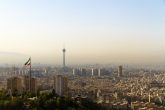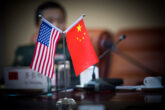September 17, 2018
Competing Economic Futures for the Korean Peninsula
As Seoul presses ahead with rapprochement with Pyongyang amidst the third summit between President Moon Jae-in and Chairman Kim Jong-un this week, it is becoming apparent that the stakes of diplomacy with North Korea far transcend the scope of nuclear disarmament. Beyond the formidable challenge of implementing a verifiable denuclearization protocol, the United States must navigate a delicate balance between supporting inter-Korean peace processes where appropriate, while ensuring that Beijing does not co-opt Pyongyang’s economic future.
Every regional stakeholder is currently pursuing its variant of triangular diplomacy, playing one major power off of the other to advance its interests. South Korea is no exception. Both Seoul and Beijing see tremendous opportunity in the economic transformation of North Korea, and the Moon administration’s bold economic initiatives have facilitated a rare alignment of strategic interests between South Korea and China.
Moon’s so-called New Economic Map Initiative offers but one obvious point of synchronicity with Beijing’s priorities. This week’s inter-Korean summit will feature a renewed focus on operationalizing Moon’s vision of building a continuous economic community on the Korean Peninsula, including his stated goal of establishing railway links with North Korea by the year’s end, as key South Korean business leaders join the delegation. Some estimates indicate that Moon’s plan to build out railway links between the two Koreas could add more than 1 percentage point to South Korea’s annual gross domestic product and could also generate seven hundred thousand jobs within the next five years. Meanwhile, linking the inter-Korean railway system to the Chinese mainland would not only offer Beijing an eastward extension of its overland infrastructure initiative but would also ensure that Chinese companies are well-positioned to dominate the North Korean market.
Read the Full Article at The National Interest
More from CNAS
-
“The Ayatollah Has No Clothes” – with Rich Goldberg and Richard Fontaine
Richard Fontaine is CEO of the Center for American Security, joins Call Me Back to assess the threat FROM Iran and the threat TO Iran. Listen to the full episode on Call Me ...
By Richard Fontaine
-
Lost Decade - The U.S. Pivot to Asia and the Rise of Chinese Power with Richard Fontaine
Richard Fontaine, CEO of the Center for a New American Security, joins Coffee & Conflict to discuss his book The U.S. Pivot to Asia and the Rise of Chinese Power. He dives int...
By Richard Fontaine
-
Sharper: Allies and Partners
Amid intensifying geopolitical challenges, the United States is finding new ways to address security issues by cultivating and strengthening alliances and partnerships. How ca...
By Gwendolyn Nowaczyk & Charles Horn
-
What Can the US Expect From Sri Lanka’s New President?
Washington views Sri Lanka as a “lynchpin” of its Indo-Pacific strategy and seeks a partner committed to strengthening the democratic process and economic governance while pro...
By Keerthi Martyn




